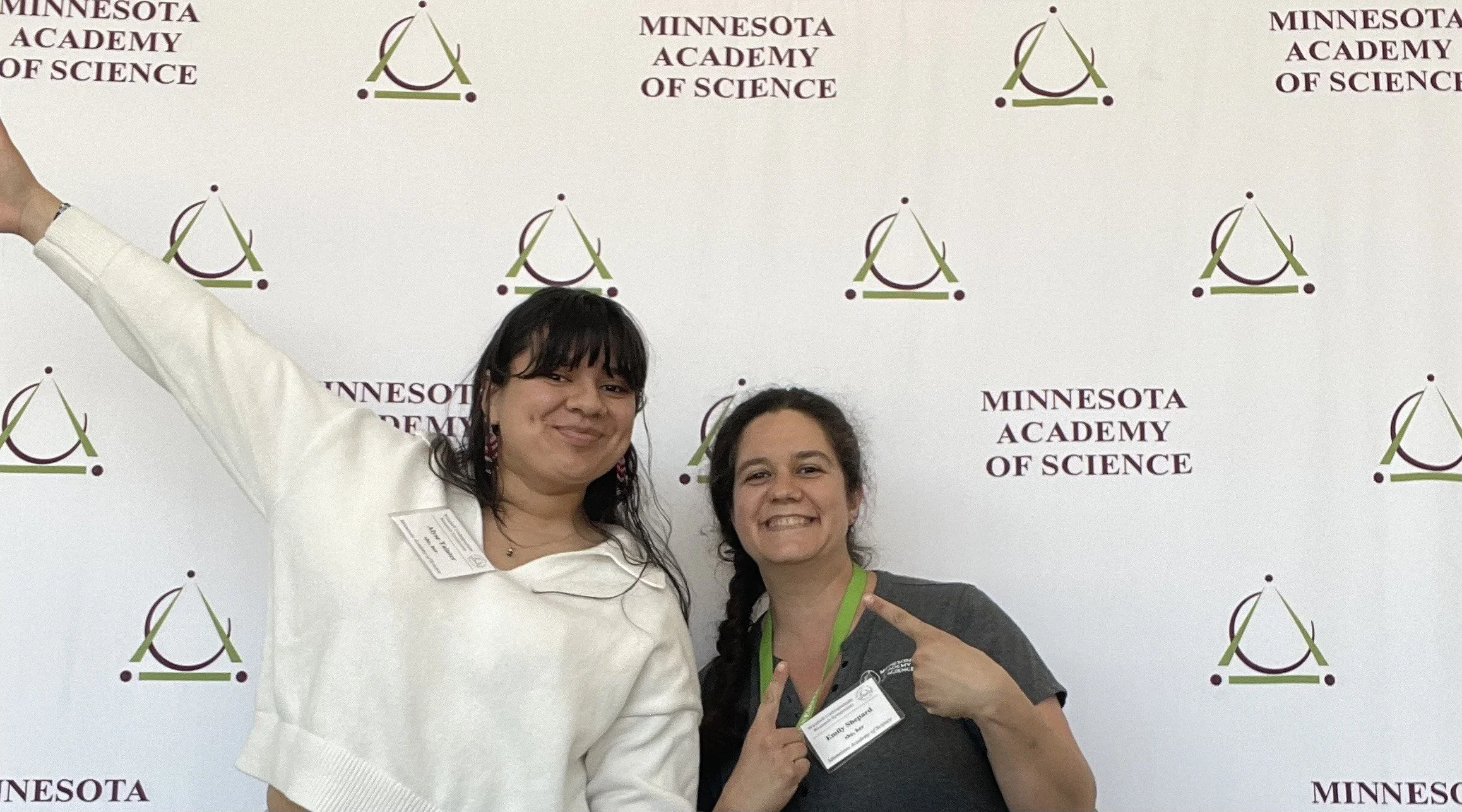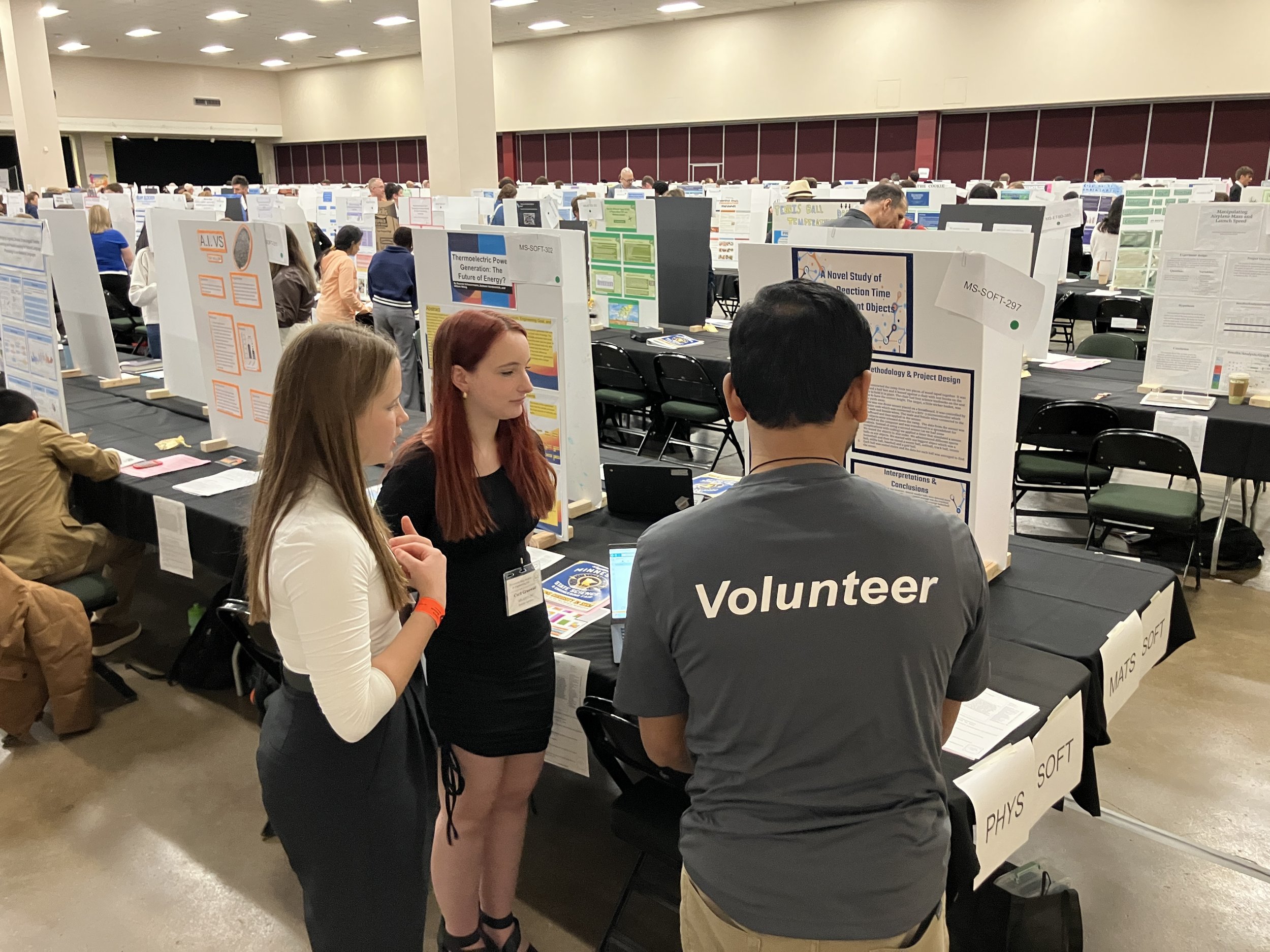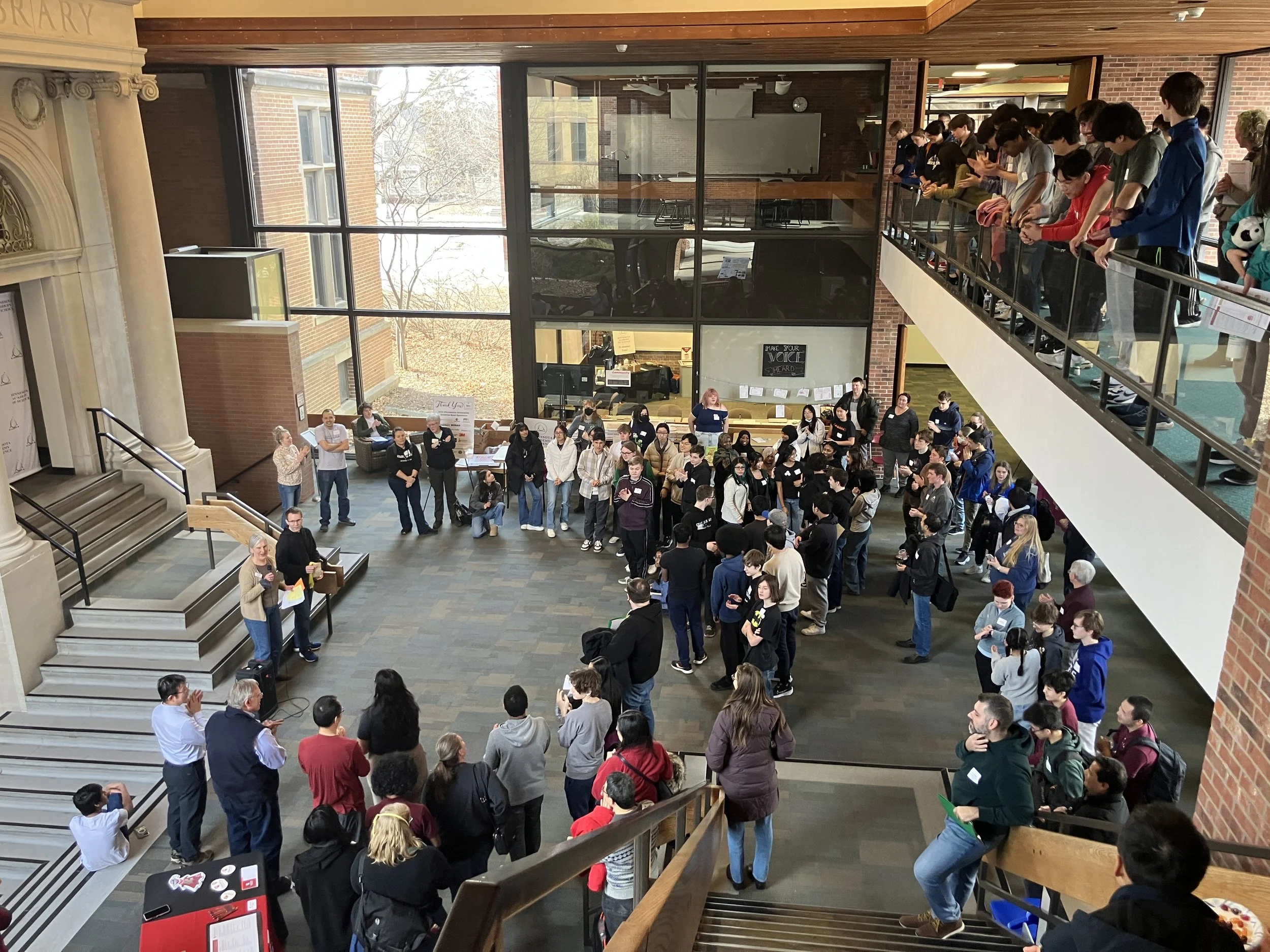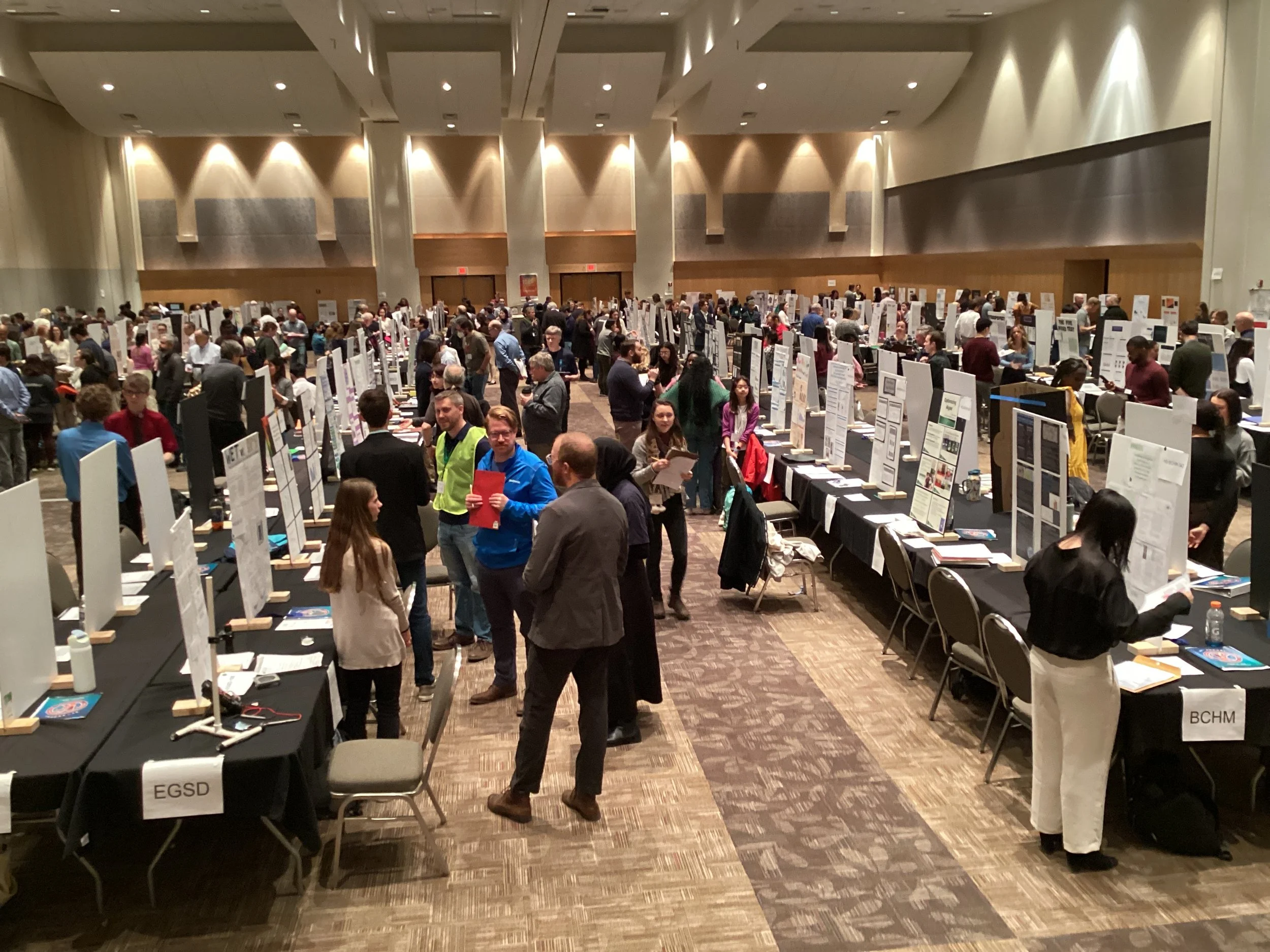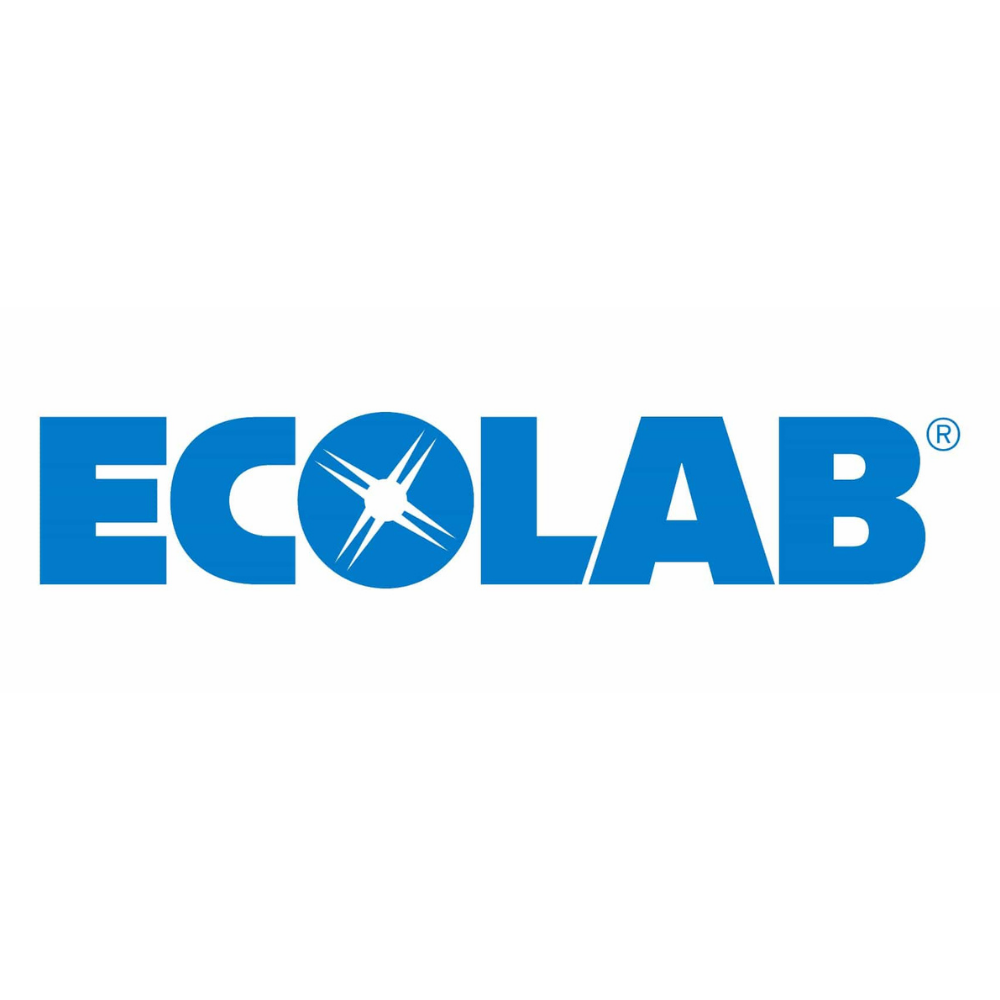ABOUT THE WINCHELL SYMPOSIUM
The 2026 Winchell Symposium will be 4/25/26 at Bethel University..
The Winchell Undergraduate Research Symposium prepares undergraduates to enter science, technology, engineering, and mathematics (STEM) fields by providing a forum for students to showcase their scientific research, receive comments from professional scientists and peers, and network with professionals in the fields they aspire to enter. There are four main components of the event: a keynote lecture, student oral presentations, breakout sessions, and student poster presentations.
All undergraduate students in MN and nearby states engaged in original research are welcome to attend.
Questions? Email info@mnmas.org
History of the Minnesota Academy of Science Annual Meeting & Winchell Undergraduate Research Symposium
Although organizing meetings for the Minnesota Academy of Science were held in 1932, the first Annual Meeting of the Minnesota Academy of Science was held on April 15, 1933 at the University of Minnesota. A brief note was published in Science about the first annual meeting:
“On April 15, the first annual meeting of the academy was held in the Zoology Building at the University of Minnesota. Ata a morning and an afternoon session eighteen papers were read. The papers covered a wide variety of fields, including biology, chemistry, geology and astronomy. The noonday luncheon was the occasion of two addresses: one by Dr. L.M. Gould, of Carleton College, on “Antarctic Glaciation,” and one by Dr. A.E. Jenks, University of Minnesota, on “Anthropologic Problems of Special Interest in Minnesota.” Forty-nine new active members and five new associate members were elected to the academy.”
Over the years, the annual meeting took on several forms, ranging from lectures to archaeological excursions. In 1981, the Board of Directors decided to add an undergraduate research symposium hosted in conjunction with the Annual Meeting.
The Winchell Undergraduate Research Symposium was named after Newton H. Winchell, four-time President of the Minnesota Academy of Natural Sciences (the pre-cursor to the present Minnesota Academy of Science) and noted geologist. As one of the most prominent members of the early Academy and a proponent of higher education, Winchell was a natural choice to name the symposium.
Newton H. Winchell began his career in geology as an assistant at the Michigan and Ohio geological surveys. In 1872, six years after graduating from the University of Michigan, Winchell was invited to join the staff of the University of Minnesota by William Folwell, first President of the University of Minnesota. The same year, the state legislature passed an act enabling the University of Minnesota to conduct a statewide geological survey and establish a natural history museum (now the Bell Museum of Natural History). Winchell was named the state geologist and undertook the survey.
As part of the survey, Winchell and his team confirmed the existence of the prehistoric glacial Lake Agassiz, approximated a date for the second glacial epoch through a study of the recession of the Falls of St. Anthony, and discovered numerous artifacts from prehistoric tribes native to Minnesota. His discovery of multiple iron ore ranges in northern Minnesota contributed to the burgeoning mining industry in Minnesota.
Along with his brother Alexander, Winchell established American Geologist as a journal for emerging research in the geological sciences. American Geologist is credited as being a major force in developing geology into one of the main sciences and with increasing its popularity with the general public.
Winchell was a strong supporter of higher education. In his 1881 inaugural address as President of the Minnesota Academy of Sciences, he advocated for a robust State-sponsored university system to educate citizens in the sciences. He believed that it was the duty of the state to provide quality education to its citizens in order to be under the guidance of well-educated citizens and elected officials. In his inaugural address, he said “It is the right and duty of the state itself to look after its own interests, and especially its highest interests, and to take measures to qualify citizens not only to read their ballots, but to discharge all the duties of high citizenship.”
For detailed information from each year, please visit the Archives page.
1981 – Minneapolis Community College
1982 – Gustavus Adolphus College
1983 – University of Minnesota – Duluth
1984 – University of St. Thomas
1985 – College of St. Catherine
1986 – St. Cloud State University
1987 – Moorhead State University
1988 – Macalester College
1989 – St. Olaf College
1990 – Rochester
1991 – College of St. Catherine
1992 – University of St. Thomas
1993 – University of Minnesota – Duluth
1994 – Moorhead State University
1995 – University of Minnesota – Morris
1996 – Hamline University
1997 – University of Minnesota – Twin Cities
1998 – Winona State University
1999 – Macalester College
2000 – Moorhead State University
2001 – University of St. Thomas
2002 – Gustavus Adolphus College
2003 – University of Minnesota – Twin Cities
2004 – St. John’s University
2005 – No symposium was held
2006 – Macalester College
2007 – Hamline University
2008 – Bethel University
2009 – College of St. Catherine
2010 – University of St. Thomas
2011 – North Hennepin Community College
2012 – St. Olaf College
2013 – Augsburg College
2014 – St. Mary’s University of Minnesota
2015 – University of Northwestern – St. Paul
2016 – University of Minnesota, Twin Cities
2017 – Macalester College
2018 - University of St. Thomas
2019 - Century College
2020 - cancelled due to the COVID-19 pandemic
2021 - held virtually
2022 - Hamline University
2023 - College of Saint Benedict & Saint John’s University
2024 - St. Mary's University of Minnesota
2025 - North Hennepin Community College



















